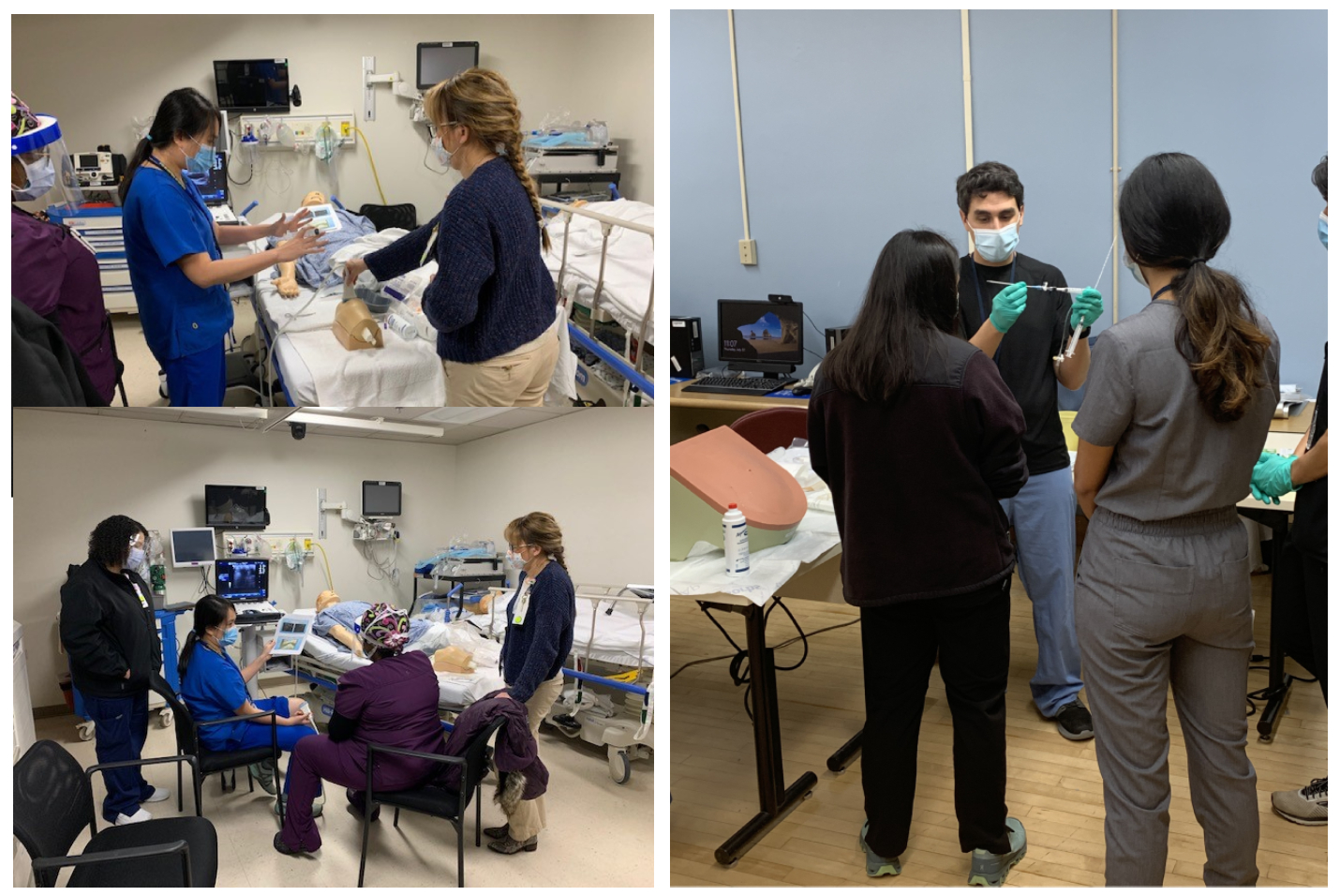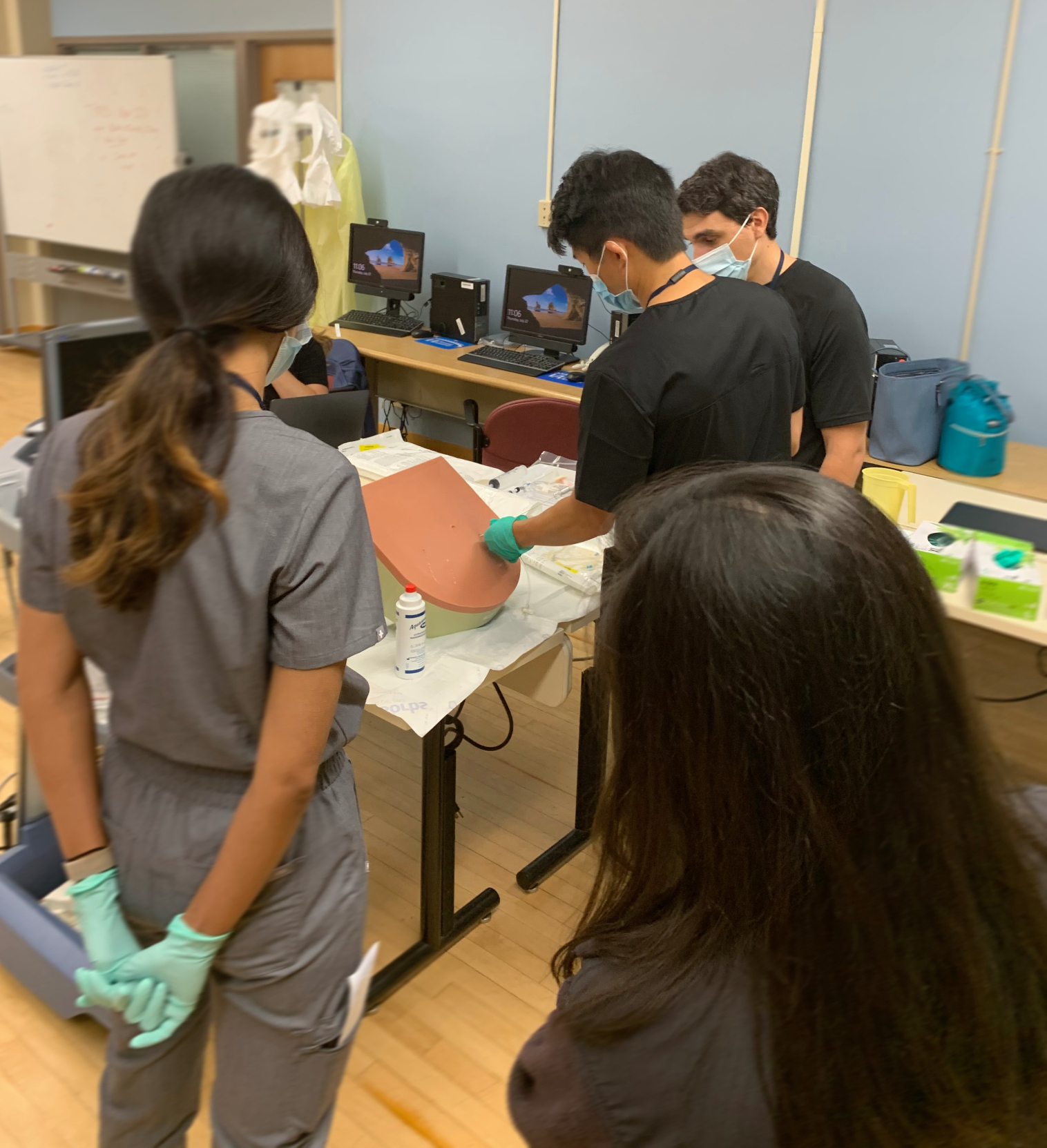Core Curriculum & Program Domains
The IAFCS coordinating center facilitates the overall strategy for fellows achieving competence
in the
core domains during the year-long fellowship experience by
- Overseeing the development of a foundational national curriculum with contributions from local sites.
- Ensuring national and local curricula, including fellow assessments, align with core domains.
- Scheduling periodic check-ins with fellows to discuss activities at local fellowship sites.
The Fellowship Experience
Experiential learning is an integral aspect of the fellowship, and local medical centers provide active participation opportunities through substantive simulation projects. We expect fellows to serve on local facility and national committees in order to diversify their healthcare delivery experience, ultimately further informing the development of simulation-based trainings. Through the development of the capstone project, fellows will be mentored and coached in leadership and change management skills to advance the value of simulation tools throughout the country.
The core curriculum consists of semi-monthly virtual conferences: one focusing on fundamental concepts in clinical simulation (DIDACTIC series) and the other highlighting recent developments and specialty areas (LEARN series). These conferences provide the opportunity to present ongoing work with capstone projects. Pieces of the core curriculum include two required SimLEARN courses: Introduction to Clinical Simulation (ICS) and SimLEARN Faculty Instructor Course (SFIC). ICS is offered as a virtual or in-person course, and SFIC is an in-person course held at the National SimVET Center (NSC) in Orlando, Florida. Travel will be required for SFIC, and funding will be provided for these courses when taken at the NSC.
Fellows will work on national simulation projects, building their professional network and helping to improve Veteran care. They will virtually attend multiple community of practice (CoP) meetings, including the SimLEARN Simulation CoP call. In their final quarter, fellows submit articles to the SimLEARN Newsletter, Simulation Exchange, a national publication.”
Fellows are expected to attend a fellowship-wide conference, held at the NSC or virtually. Funding is provided for each fellow to attend the annual International Meeting on Simulation in Healthcare (IMSH) hosted by the Society of Simulation in Healthcare (SSH). Attending IMSH is a fellowship requirement for which travel is provided.
In the first quarter, fellows will build their Individualized Development Plan (IDP) utilizing the domains framework. Fellows receive constructive feedback and evaluations each succeeding quarter. Additionally, the fellows will develop an e-portfolio to track their experiences throughout the year. Completion requirements of the fellowship include attendance of core curriculum activities as well as presenting a capstone project in a national setting (which includes the VHA’s Simulation CoP presentations).

Calendar
July
Onboarding
Aug
Orientation (Virtual)
Sep
Introduction to Clinical Simulation Course
Oct
Fellowship Conference
Nov
SimLEARN Faculty Instructor Course
Jan
International Meeting on Simulation in Healthcare (IMSH)
Mar
Spring: Capstone Presentations
Jun
Graduation
Fellowship Program Domains

a) Learning theories (Kolb, Knowles, Adult Learning Theory, etc.)
b) Interprofessional Education Collaborative (IPEC)
c) Simulation modalities
d) Curriculum development
e) Facilitation (prebrief and debrief)
f) Safe learning environment (physical and psychological)
g) Assessments/evaluations (formative/summative, ADDIE, Kirkpatrick, etc.).
a) Simulation center management/operations (consumables, people, policies, data
management, etc.)
b) Organizational structure (interdepartmental collaboration, external stakeholders)
c) Budget Resource Allocation (time, money, people)
d) Logistics and Acquisitions (dealing with vendors)
e) Strategic planning (communication of value, reports: inventory, learner hours, accreditation)
f) Return on investment (ROI, patient outcomes)
g) Committee involvement (integration into RCAs, QA committee, critical care committee, etc.).
Immersion by observing, participating and networking with departments and professionals within and outside of his/her clinical area of expertise.
a) Modalities, to include low and high fidelity, virtual, standardized patients, gaming
and hybrid
b) Applications, to include scenarios, skills, group and individual.
a) Evidence/Analysis (literature review, critical appraisal)
b) Research design (methodology, POEM, controls, power analysis, etc.)
c) Proposal (IRB process, funding)
d) Data gathering/Statistical analysis
e) Presentations/publications (posters, abstracts, public presentations, peer reviewed publications)
a) Leadership (vision/planning, leadership styles, people skills)
b) Professional Integration (systems thinking, interdisciplinary, team building)
c) Network & Collaboration (global participation, institution, community)
d) Opportunity Identification (market analysis, innovation, employment, and advisement)
e) Veteran-Centric Care
a) Systems Process Analysis (RCA, healthcare failure and effects modes)
b) Simulation Integration (curricular development, identification of learners)
c) Metrics and Outcomes (pretest performance, simulation intervention, posttest performance, outcome evaluation)
Evaluation
In quarter 1, fellows will build out their Individualized Development Plan (IDP) along the domains
framework.
Each successive quarter, fellows will receive formative feedback along the domains and evaluations along a
novice to expert gradient. Additionally, the fellows will develop an e-Portfolio, tracking their
experiences
and work throughout the year. Completion requirements of the fellowship include the presentation of the
Capstone Project in a national setting (which includes the VHA’s Simulation Community of Practice
presentations).
Answers to frequently asked questions
coming soon.

Let's
Connect!
Email us with any questions or
inquiries. We would be happy to answer your questions.
For further information about each local site, please contact the co-directors of each site. For program
information about the National Coordinating Center, please contact Dr. Nelson Wong at Nelson.Wong@va.gov or Dr. Laura Kim at Laura.Kim@va.gov